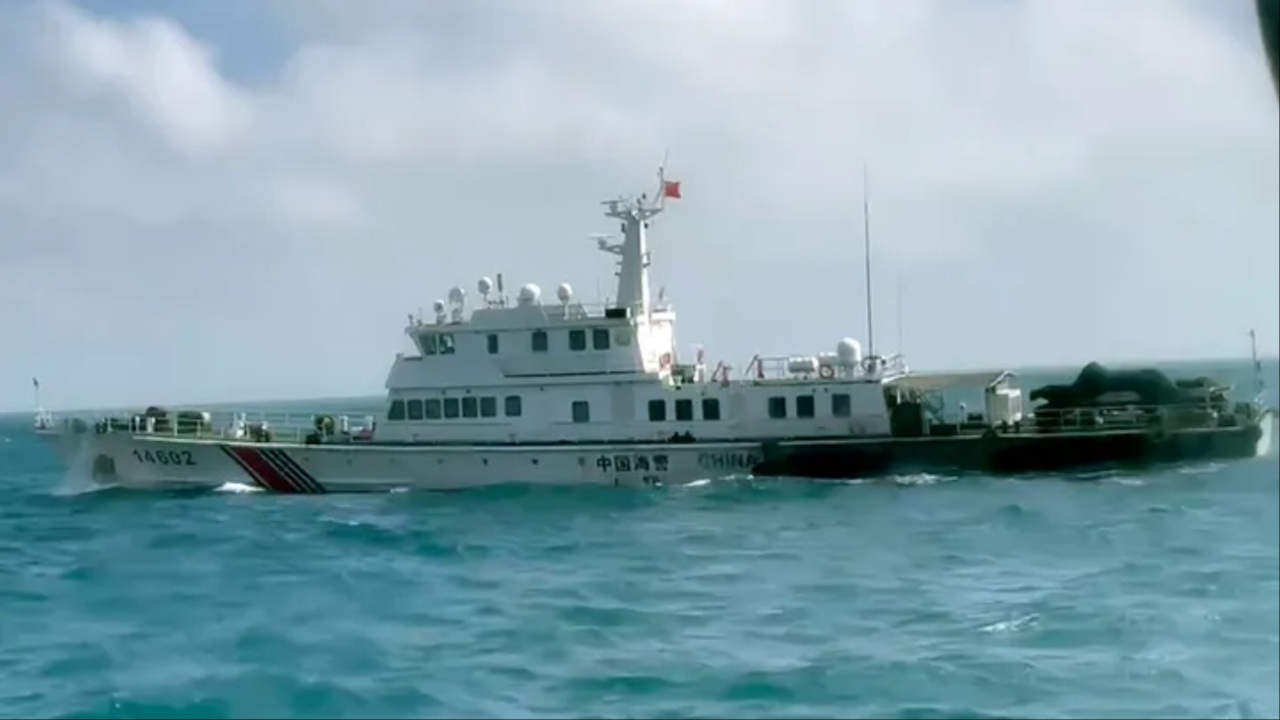China recently conducted a significant military exercise simulating a blockade of Taiwan that lasted 13 hours, starting on October 14, 2024. This operation involved an unprecedented deployment of aircraft, an aircraft carrier, and both Navy and Coast Guard vessels.
While media narratives often frame this as a punitive measure against Taiwan’s new president, William Lai, for his recent comments, experts argue that these exercises were planned in advance and serve broader strategic objectives.
Elizabeth Freund Larus from the Atlantic Council notes that the military drills aim to degrade Taiwan’s military capabilities and instill a sense of insecurity among its populace, thereby altering the current status quo of Taiwan’s separation from China.
The military exercises may appear to be a direct response to Taiwan’s leadership, but Dr. Chang Ching, a senior research fellow, emphasizes the importance of context. He points to military logs from Japan, which tracked Chinese and Russian naval activity preceding the exercise, suggesting that the timing and location were part of a larger strategic maneuver.
The primary objective, according to Chang, is to challenge the United States and dissuade it from intervening in a potential conflict over Taiwan. By demonstrating the ability to surround Taiwan, China is sending a clear message: any American military response could lead to significant risks.

China Conducts Major Military Exercise Simulating Blockade of Taiwan to Challenge U.S. and Intimidate Taipei
The joint military exercises have raised concerns about their implications for U.S.-China relations, particularly regarding the United States’ readiness to handle multiple crises in the region simultaneously.
Local experts, including Lin Ying-yu from Tamkang University, argue that these drills are a calculated effort to gauge the U.S. response capabilities amid rising tensions on the Korean Peninsula and in the Taiwan Strait. As China continues to enhance its naval capabilities, including a modern fleet that rivals the U.S. Navy, analysts caution against underestimating its military strength.
During the exercise, Taiwan’s public response was notably calm, with many citizens expressing little fear or concern. This reaction may reflect a troubling acceptance of the reality that Taiwan’s military capabilities are insufficient to deter China’s aggressive posture.
The proximity of the drills, coming within 24 nautical miles of Taiwan, underscores the growing threat and may lead to a desensitization among the Taiwanese people regarding their government’s ability to protect them.
The exercise also featured a significant display of the Chinese Coast Guard, which is heavily armed and equipped with modern vessels. The use of a heart-shaped drill route on social media by the China Coast Guard was interpreted as both menacing and patronizing, highlighting the complex and often abusive relationship between Taiwan and China.
Despite this show of force, a recent poll indicated that a significant majority of Taiwanese expect U.S. support in the event of an attack, raising questions about the perceived effectiveness of U.S. responses to Chinese provocations.
The U.S. State Department has voiced concern over the military drills, characterizing them as destabilizing. However, the choice of language, particularly the term “disproportionate,” has sparked debates in Taiwan about the adequacy of the U.S. response to Chinese actions.
With calls from Taiwanese officials for more concrete international measures to counter Chinese aggression, experts like Kitsch Liao stress the need for Taiwan to update its National Security Strategy. Such updates are essential for fostering collective action among democracies to maintain peace and stability in the Taiwan Strait amid escalating tensions.
